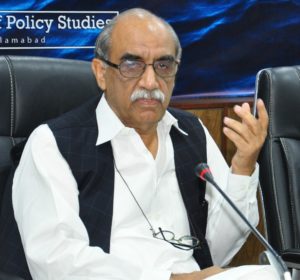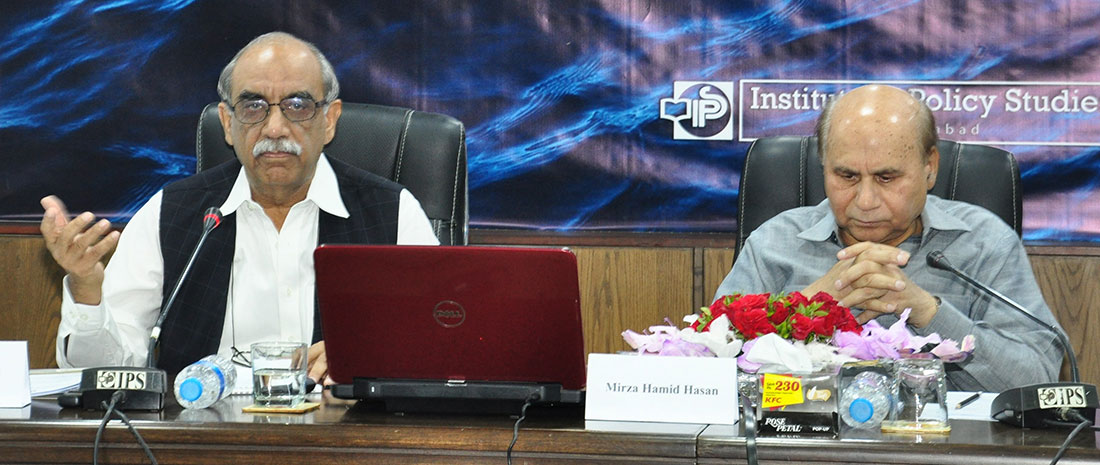‘Build smaller dams if large ones attract controversies’ – Ashfaq Mehmood
Ashfaq Mehmood, a former federal secretary and renowned water and energy expert, while commending Pakistan’s first national water policy’s unanimous approval despite years of delay, has said that the worldview was now moving from construction of larger dams to building of smaller ones and the same approach could be well-suited to Pakistan as well especially when the larger dams have a tendency of attracting controversies and need huge investments and loans to build.
 He was addressing a roundtable session titled ‘Pakistan’s National Water Policy: An Appraisal’ held at IPS on May 11, 2018. The session was chaired by Mirza Hamid Hasan, former federal secretary and chairman, IPS’ committee on Energy, Water and Climate Change. The other main speakers among the discussants were Syed Akhter Ali, former Member Energy, Planning Commission of Pakistan, DG-IPS Khalid Rahman and Ambassador (r) Tajammul Altaf.
He was addressing a roundtable session titled ‘Pakistan’s National Water Policy: An Appraisal’ held at IPS on May 11, 2018. The session was chaired by Mirza Hamid Hasan, former federal secretary and chairman, IPS’ committee on Energy, Water and Climate Change. The other main speakers among the discussants were Syed Akhter Ali, former Member Energy, Planning Commission of Pakistan, DG-IPS Khalid Rahman and Ambassador (r) Tajammul Altaf.
Urging to tackle the issue of water scarcity through scientific means, Mehmood advised on devising a mechanism to make rainwater and muddy water usable after cleansing. The speaker also suggested limiting the cultivation of certain crops – such as sugar and rice – which needed a lot of water for their growth, and replacing them with the ones which required lesser amount of water.
Awareness-raising over water issues was another area pointed by him that sought attention. He termed it a need of time to train people in using water with much care, even stressing that the topic should even be taught to children at schools in a bid to create its understanding from the elementary level.
Appreciating the approval of Pakistan’s first National Water Policy by all the four provinces despite having a room for improvement, the experts participating in the roundtable stressed on expediting the policy’s implementation by relying on country’s own resources instead of seeking help from others.
Mirza Hamid Hasan viewed that while the importance of water for any country needs no exposition, yet it was unfortunate that the policy over the issue took so long in formulation due to the disagreements among policymakers. It was however heartening to finally see the consensus over the matter which can be seen as a historical happening for Pakistan.
The roundtable session, which was participated by policy practitioners, former bureaucrats and water and energy experts, saw many other viable recommendations put on board as well including the efficient utilization of water coming from Kabul river and the striking of an agreement similar to the Indus Water Treaty with China and Iran as well.
For detailed report, click here.












